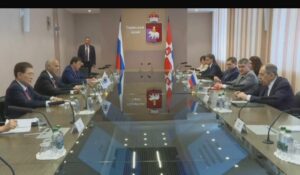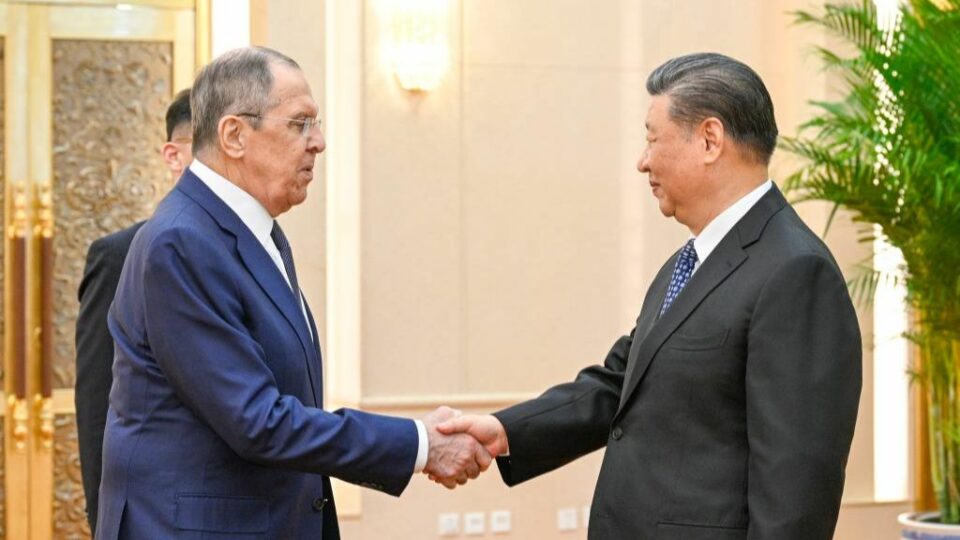

As the West clings to a post–Cold War order, a new geopolitical vision is emerging from the East. During the 43rd Standing Committee meeting of the International Conference of Asian Political Parties (ICAPP), held in Perm, Russia from May 28 to 30, 2025, Asian leaders outlined a multipolar Eurasian future one rooted in sovereignty, regional cooperation, and a rejection of ideological blocs. From Lavrov’s denunciation of NATO to China and Pakistan’s push for connectivity and development, a new world order is taking shape one that could fundamentally reshape global power dynamics.
The recent remarks by Russian Foreign Minister Sergei Lavrov at the International Conference of Asian Political Parties (ICAPP) meeting in Perm underscore a pivotal moment in global geopolitics. Lavrov’s critique of the European Union (EU) for aligning too closely with NATO accusing it of abandoning Eurasian identity in favor of Euro-Atlantic integration reflects a broader strategic realignment. Alongside Pakistani Senator Mushahid Hussain’s advocacy for a new Eurasian security architecture and South Korea’s Chung Eui-yong’s diplomatic overtures these developments signal a concerted push toward multipolarity challenging Western dominated frameworks .
This article examines the key themes emerging from the ICAPP dialogue including:
1. Lavrov’s Vision of a Post-Western Eurasia
2. China and Pakistan’s Role in Reshaping Regional Security
3. The Decline of Euro-Atlantic Institutions and the Rise of Alternatives
4. Implications for Global Power Dynamics
Lavrov’s assertion that the EU has become “more Euro-Atlantic than Eurasian” highlights Russia’s long-standing grievance with Western institutions. He argued that the EU and NATO have eroded the principles of the UN Charter particularly sovereignty and non-interference, citing their involvement in Ukraine and other post Soviet states as destabilizing .
Key points from his address:
– Rejection of Western Hegemony: Lavrov framed the Ukraine conflict and NATO expansion as symptoms of a failing unipolar order, advocating instead for a “Large Eurasian Partnership” based on equality and indivisible security .
– Institutional Alternatives: He praised organizations like the Shanghai Cooperation Organization (SCO) and BRICS, which have surpassed the G7 in economic output as models for a multipolar world .

This aligns with Russia’s broader strategy to diminish U.S. influence in Eurasia by promoting economic and security frameworks that exclude Western participation .
2. China and Pakistan: Architects of a New Eurasian Security Model
Senator Mushahid Hussain, a prominent voice at ICAPP, echoed Lavrov’s sentiments, declaring that Asia must reject “Cold War mentality” and “Asian NATO” constructs. His remarks emphasized:
– Technological and Strategic Parity: Citing China’s advancements in AI (e.g., Deep Seek), defense (J-10C jets), and green technology, Hussain positioned China as a “scientific superpower” surpassing the West .
– Connectivity Over Confrontation: He championed the China-Pakistan Economic Corridor (CPEC) and other Belt and Road Initiative (BRI) projects as pillars of a cooperative Eurasian future .
Liu Jianchao of China’s Communist Party reinforced this, stating that China seeks to share development modelslike poverty alleviation rather than impose ideology .
3. The Erosion of Euro-Atlantic Institutions
Lavrov’s dismissal of the EU and OSCE as “degrading” reflects Moscow’s broader narrative:
– Failed Security Models: Russia accuses NATO of provoking conflict through expansion, contrasting it with the Moscow Security Conference’s focus on “indivisible security” .
– The Rise of the Global South: The ICAPP meeting, attended by 250 parties from 29 countries, showcased growing solidarity among Asian, African, and Latin American states against Western unilateralism .
4. Global Implications: Toward Multipolarity
The ICAPP dialogue underscores three transformative trends:
1. Economic Shift: BRICS and SCO economies now outpace the G7, with China and Russia leveraging trade and infrastructure to reshape regional alliances .
2. Diplomatic Realignment: South Korea’s outreach to Russia, as noted by Chung Eui-yong suggests even U.S. allies are hedging bets in a multipolar world .
3. Ideological Contestation: The West’s “rules-based order” faces mounting challenges from norms emphasizing sovereignty and non interference .
Emebet Asefa, Correspondant, Addis Abeba




